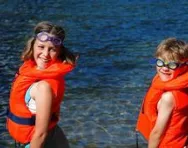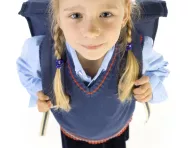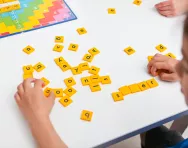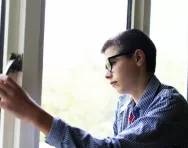Important update from TheSchoolRun
For the past 13 years, TheSchoolRun has been run by a small team of mums working from home, dedicated to providing quality educational resources to primary school parents. Unfortunately, rising supplier costs and falling revenue have made it impossible for us to continue operating, and we’ve had to make the difficult decision to close. The good news: We’ve arranged for another educational provider to take over many of our resources. These will be hosted on a new portal, where the content will be updated and expanded to support your child’s learning.
What this means for subscribers:
- Your subscription is still active, and for now, you can keep using the website as normal — just log in with your usual details to access all our articles and resources*.
- In a few months, all resources will move to the new portal. You’ll continue to have access there until your subscription ends. We’ll send you full details nearer the time.
- As a thank you for your support, we’ll also be sending you 16 primary school eBooks (worth £108.84) to download and keep.
A few changes to be aware of:
- The Learning Journey weekly email has ended, but your child’s plan will still be updated on your dashboard each Monday. Just log in to see the recommended worksheets.
- The 11+ weekly emails have now ended. We sent you all the remaining emails in the series at the end of March — please check your inbox (and spam folder) if you haven’t seen them. You can also follow the full programme here: 11+ Learning Journey.
If you have any questions, please contact us at [email protected]. Thank you for being part of our journey it’s been a privilege to support your family’s learning.
*If you need to reset your password, it will still work as usual. Please check your spam folder if the reset email doesn’t appear in your inbox.
School trips - what to expect

Why do schools organise educational trips?
We learn best when we can see, hear, touch and feel - in other words, when we can experience things at first hand. Multi-sensory learning is an important part of school life, and school trips answer the requirements of all five senses.
It’s because of this that the school arranges trips to help your child learn more about the subjects that they are studying. History, geography and science are the most popular subjects for visits, but educational trips can be used to support all kinds of subjects.


Claim four puzzle packs!
- Word Puzzle Packs
- Numeracy Puzzle Packs
- Challenging and exciting | Boost key skills
The legalities
The school has a legal obligation to inform the governors if it plans to take children out of school. That’s because it’s the responsibility of the governing body to make sure that the visit is appropriate and that all measures have been taken to ensure the safety of the children.
Schools are required to carry out a risk assessment for each school trip and they will go to great lengths to look after your child properly. But if for any reason you are not happy about safety arrangements, you have the right to withdraw your child from a planned trip.
Information
The first that you will usually know about a school visit is when your child brings a letter from school informing you of the intended trip.
This letter should give you the following information:
- Date and times of visit
- Destination
- Purpose of the visit
- Cost of the trip
- Travel arrangements
You will usually be asked to return a slip either giving or withholding your permission for your child to go on the visit, along with any payment for the trip.
The letter may also ask you if you are able to help on the day. You don't need any special checks such as a Disclosure and Barring Service check (DBS; previously Criminal Records Bureau or CRB) to help on a trip as long as you'll be supervised by a regulated person such as a teacher.
Remember that it’s essential that your child’s school has up to date contact numbers for you and for anyone else who can be contacted in an emergency.
Payment
Few schools can afford to meet the total cost of trips that involve transport and entry fees. You may therefore be asked to make a voluntary contribution towards the cost. However, the school can’t force you to pay and it can’t bar your child from a trip because you have refused to pay. However, the school may have to cancel a planned visit if the total parental contributions don’t cover most of the costs.
Valuables
Schools cannot be held responsible for valuables, such as cameras, computer games and personal stereos. If your child wants to take something like that, make sure it is carefully named and that they know how to work it. However, it is probably best to discourage your child from taking personal belongings with them in case they lose them.
If your child needs to take spending money, find a secure purse for it and try to give it to them in change, rather than a large note.







